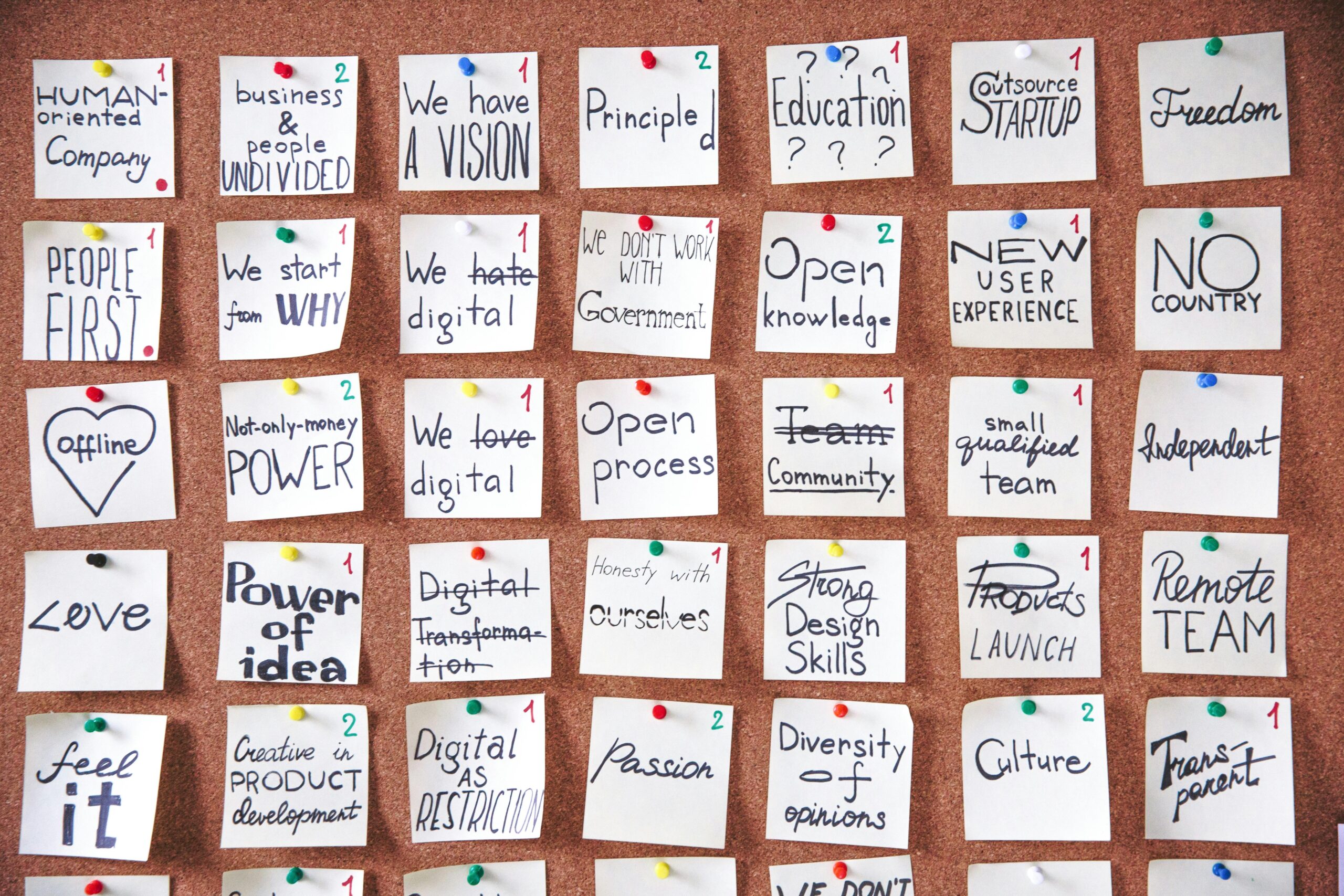In today’s rapidly evolving business landscape, responsible leadership has emerged as a critical driver of organizational success and societal progress, shaping how companies navigate complex challenges while creating lasting positive impact.
🌍 Understanding the Foundation of Responsible Leadership
Responsible leadership represents a fundamental shift from traditional management paradigms that prioritized shareholder value above all else. This contemporary approach recognizes that organizations exist within interconnected ecosystems where their decisions ripple across communities, environments, and economies. Leaders embracing this philosophy understand that sustainable success requires balancing profit with purpose, considering stakeholder interests, and making decisions that benefit both present and future generations.
The concept extends beyond corporate social responsibility initiatives or charitable donations. It encompasses a holistic approach to governance, strategy development, and daily operations. Responsible leaders actively seek to understand and address the broader implications of their business activities, from supply chain ethics to environmental stewardship and employee wellbeing.
Research from leading business schools consistently demonstrates that organizations led with purpose outperform their competitors over the long term. They attract top talent, build stronger customer loyalty, and demonstrate greater resilience during economic downturns. This isn’t merely coincidental—it reflects the fundamental alignment between organizational values and stakeholder expectations in the modern era.
The Core Principles Driving Purpose-Led Organizations
Several foundational principles distinguish responsible leadership models from conventional approaches. These principles serve as guideposts for leaders committed to creating sustainable value while maintaining ethical integrity throughout their operations.
Stakeholder-Centric Decision Making
Traditional business models often viewed stakeholders as separate entities with competing interests. Responsible leadership recognizes that employees, customers, suppliers, communities, and shareholders are interdependent participants in a shared ecosystem. Decisions made through this lens consider multiple perspectives and seek win-win outcomes that strengthen relationships across all stakeholder groups.
This approach requires developing sophisticated listening mechanisms and feedback loops. Leaders must cultivate genuine curiosity about stakeholder needs, concerns, and aspirations. They engage in meaningful dialogue rather than one-way communication, understanding that diverse perspectives enhance decision quality and innovation potential.
Transparency and Accountability as Strategic Assets
In an age where information flows freely and corporate activities face unprecedented scrutiny, transparency has evolved from a compliance requirement to a strategic advantage. Responsible leaders embrace openness about organizational performance, challenges, and decision-making processes. They recognize that trust, once lost, proves extraordinarily difficult to rebuild.
Accountability mechanisms extend beyond financial reporting to encompass environmental, social, and governance metrics. Forward-thinking organizations publish comprehensive sustainability reports, set measurable targets for improvement, and invite external audits to verify their claims. This vulnerability paradoxically strengthens organizational credibility and stakeholder confidence.
Long-Term Value Creation Over Short-Term Gains
Perhaps the most challenging principle involves resisting pressures for immediate results in favor of sustainable, long-term value creation. Quarterly earnings cycles and market expectations can push leaders toward decisions that boost short-term metrics while undermining future prosperity. Responsible leadership requires the courage to make investments that may not yield immediate returns but build enduring competitive advantages.
This long-term orientation influences everything from research and development spending to talent development programs and infrastructure investments. It recognizes that organizational longevity depends on continuous adaptation, innovation, and relationship building—activities that require patience and persistent commitment.
🚀 Implementing Responsible Leadership in Practice
Translating responsible leadership principles into concrete actions requires intentional strategy, clear processes, and cultural transformation. Organizations successfully making this transition share several common practices that embed purpose throughout their operations.
Defining and Articulating Organizational Purpose
The journey begins with articulating a compelling purpose that transcends profit generation. This purpose statement should answer fundamental questions: Why does the organization exist? What unique value does it bring to the world? How does it improve lives or solve meaningful problems?
Effective purpose statements resonate emotionally while providing practical guidance for decision-making. They inspire employees, attract aligned partners, and help customers understand what the organization stands for. Leaders must consistently communicate this purpose, demonstrating through actions how it influences strategy and priorities.
Integrating ESG Considerations into Strategy
Environmental, Social, and Governance factors have moved from peripheral concerns to central strategic considerations. Responsible leaders systematically integrate ESG criteria into strategic planning, risk management, and performance evaluation processes.
Environmental considerations address climate impact, resource consumption, waste reduction, and ecosystem protection. Social factors encompass labor practices, diversity and inclusion, community engagement, and human rights throughout the value chain. Governance elements ensure ethical leadership, board effectiveness, and transparent reporting structures.
Organizations implementing robust ESG frameworks develop specific, measurable objectives aligned with global standards such as the United Nations Sustainable Development Goals. They establish cross-functional teams to drive progress, allocate resources appropriately, and tie executive compensation to ESG performance metrics.
Cultivating Purpose-Driven Organizational Culture
Culture ultimately determines whether responsible leadership principles remain abstract ideals or become living realities. Leaders must intentionally shape cultural norms, values, and behaviors that reinforce purpose-driven decision-making at every organizational level.
This cultural transformation starts with talent acquisition and onboarding processes that emphasize organizational values and purpose. It continues through training programs that develop ethical reasoning capabilities and stakeholder awareness. Recognition and reward systems must celebrate employees who exemplify responsible leadership behaviors, even when doing so involves personal or professional risks.
Psychological safety plays a crucial role, enabling employees to raise ethical concerns, challenge questionable decisions, and propose alternative approaches without fear of retaliation. Leaders model vulnerability by acknowledging mistakes, soliciting feedback, and demonstrating continuous learning.
💼 Navigating Challenges on the Responsible Leadership Journey
Despite growing recognition of responsible leadership’s importance, organizations face significant obstacles when attempting to implement these models. Understanding these challenges helps leaders develop realistic strategies for overcoming them.
Balancing Competing Stakeholder Interests
Stakeholder capitalism sounds appealing in theory but proves complex in practice. Stakeholders often hold divergent priorities and expectations. Employees may seek higher wages while shareholders demand greater returns. Environmental advocates push for carbon neutrality while customers resist price increases to fund sustainability initiatives.
Responsible leaders must develop sophisticated frameworks for navigating these tensions. They engage in transparent dialogue about trade-offs, explaining decision rationale and demonstrating how choices align with overarching purpose. They recognize that perfect solutions rarely exist, focusing instead on optimizing outcomes across multiple dimensions simultaneously.
Resisting Short-Term Pressure in Financial Markets
Public companies face relentless pressure to deliver quarterly results that satisfy analyst expectations. This dynamic can conflict with investments in sustainability, innovation, and long-term capacity building that may depress near-term earnings. Leaders committed to responsible practices must educate investors about their strategic approach and build shareholder bases aligned with long-term value creation.
Some organizations have explored alternative corporate structures, such as benefit corporations or cooperatives, that legally protect mission-driven priorities. Others have chosen to remain private or delay public offerings to maintain strategic flexibility. These structural choices reflect recognition that governance frameworks significantly influence leadership behavior.
Measuring and Communicating Impact Effectively
Quantifying social and environmental impact remains challenging compared to traditional financial metrics. Organizations struggle to develop meaningful measures that capture the full scope of their responsible leadership efforts without overwhelming stakeholders with data.
Emerging frameworks like integrated reporting and standardized ESG disclosure requirements provide helpful structures. However, responsible leaders must go beyond compliance, telling compelling stories that illustrate impact through both quantitative data and qualitative narratives. They invest in robust data collection systems while remaining transparent about measurement limitations and areas requiring improvement.
🌱 The Business Case for Purpose-Driven Leadership
Skeptics sometimes characterize responsible leadership as altruism that compromises business performance. However, mounting evidence demonstrates that purpose-driven organizations generate superior financial returns alongside positive social and environmental outcomes.
Talent Acquisition and Retention Advantages
Today’s workforce, particularly younger generations, increasingly prioritizes purpose and values alignment when selecting employers. Organizations with authentic commitments to responsible leadership attract high-quality candidates, reduce turnover, and benefit from enhanced employee engagement and productivity.
Employees working for purpose-driven organizations report greater job satisfaction, stronger organizational commitment, and higher levels of discretionary effort. They become brand ambassadors, enhancing recruitment efforts and strengthening organizational reputation. These dynamics create competitive advantages in tight labor markets where talent represents a critical success factor.
Customer Loyalty and Market Differentiation
Consumers demonstrate growing preference for brands demonstrating authentic social and environmental responsibility. They increasingly research corporate practices, support companies aligned with their values, and punish those perceived as exploitative or irresponsible through boycotts and negative word-of-mouth.
Responsible leadership creates emotional connections with customers that transcend transactional relationships. These bonds generate pricing power, repeat purchases, and resistance to competitor offerings. In commoditized markets, purpose and values become primary differentiators influencing purchasing decisions.
Risk Mitigation and Operational Resilience
Organizations implementing responsible leadership practices develop greater awareness of emerging risks and enhanced capacity to respond effectively. Their stakeholder engagement processes provide early warning systems for potential issues. Their emphasis on transparency and ethical behavior reduces regulatory scrutiny and reputational vulnerabilities.
Climate-related risks exemplify this dynamic. Companies proactively addressing carbon emissions, water usage, and supply chain sustainability position themselves advantageously as regulations tighten and resource constraints intensify. Those ignoring these factors face growing operational disruptions, compliance costs, and asset stranding risks.
🔮 Emerging Trends Shaping Responsible Leadership’s Future
Responsible leadership continues evolving in response to technological advances, societal expectations, and global challenges. Several trends will likely shape how organizations approach purpose-driven leadership in coming years.
Technology as an Enabler and Disruptor
Digital technologies offer unprecedented opportunities for measuring impact, enhancing transparency, and engaging stakeholders. Blockchain enables supply chain traceability, artificial intelligence supports ESG data analysis, and social platforms facilitate direct communication with diverse audiences.
However, technology also introduces new ethical challenges around data privacy, algorithmic bias, and workforce displacement. Responsible leaders must navigate these tensions thoughtfully, ensuring technological adoption aligns with organizational values and stakeholder interests rather than compromising them.
Regulatory Evolution and Standardization
Governments worldwide are implementing regulations requiring enhanced ESG disclosure, due diligence on social and environmental impacts, and accountability for value chain activities. These requirements reflect recognition that voluntary initiatives alone prove insufficient for addressing urgent sustainability challenges.
Standardization efforts seek to create comparable metrics and reporting frameworks across organizations and industries. While regulatory complexity creates compliance burdens, it also levels playing fields and rewards leaders who have already embraced responsible practices. Organizations viewing regulation as opportunity rather than threat will likely gain competitive advantages.
Systemic Collaboration and Collective Action
Many sustainability challenges—climate change, inequality, biodiversity loss—exceed any single organization’s capacity to address independently. Responsible leadership increasingly involves participating in collaborative initiatives, industry coalitions, and multi-stakeholder partnerships pursuing systemic change.
This collaborative approach requires leaders to balance competitive dynamics with collective interests. It demands humility about organizational limitations and willingness to share knowledge, resources, and even competitive advantages when doing so serves broader purposes. The most impactful leaders recognize that creating sustainable futures requires cooperation alongside competition.
🎯 Practical Steps for Aspiring Responsible Leaders
Leaders at any organizational level can begin implementing responsible leadership principles immediately, regardless of formal authority or organizational commitment. These practical steps provide starting points for the journey.
Begin by clarifying personal values and purpose. Reflect deeply on what matters most, what legacy you hope to create, and how professional activities can generate positive impact. This clarity provides an internal compass for navigating difficult decisions and maintaining integrity under pressure.
Expand awareness of organizational impact across multiple dimensions. Examine how decisions affect various stakeholders, consider environmental implications, and question assumptions underlying current practices. Curiosity and willingness to see familiar situations through new lenses enable identification of improvement opportunities.
Start conversations about purpose and responsibility with colleagues, teams, and leadership. Raise questions about strategic priorities, suggest incorporating stakeholder perspectives, and propose small experiments with responsible practices. Cultural change begins with individual actions that gradually influence broader norms.
Develop competencies essential for responsible leadership, including systems thinking, ethical reasoning, stakeholder engagement, and sustainability literacy. Seek learning opportunities through courses, reading, mentorship, and practical application. Building these capabilities enhances effectiveness and credibility as a purpose-driven leader.
Connect with like-minded leaders facing similar challenges. Professional networks, industry associations, and online communities provide valuable support, inspiration, and practical guidance. These relationships combat isolation, accelerate learning, and create opportunities for collective action.

The Imperative of Leading with Purpose Today
The challenges facing humanity—environmental degradation, social inequality, economic instability—demand leadership models that transcend narrow self-interest. Responsible leadership offers pathways toward sustainable prosperity that benefits people, planet, and business simultaneously.
This isn’t idealistic thinking disconnected from business realities. Evidence increasingly demonstrates that purpose-driven organizations outperform competitors while creating positive societal impact. The question facing leaders isn’t whether to embrace responsible practices, but how quickly and effectively they can transform their approaches.
The journey requires courage, persistence, and humility. Leaders will face resistance, encounter setbacks, and navigate complex trade-offs. However, the potential rewards—meaningful work, lasting impact, and organizations positioned to thrive in rapidly changing environments—make this journey essential.
Future generations will judge current leaders by actions taken during this critical period. Those choosing to lead with purpose, embracing responsible leadership models despite challenges and pressures, will be remembered as architects of more sustainable, equitable futures. The time for tentative steps has passed; bold, committed action is now required.
Every leader possesses agency to influence outcomes within their sphere of control. Whether leading global corporations or small teams, opportunities exist to embed purpose, prioritize stakeholders, and make decisions aligned with long-term sustainability. The cumulative effect of these individual choices will determine whether humanity successfully navigates present challenges or continues down unsustainable paths.
Leading with purpose isn’t a destination but an ongoing practice requiring continuous reflection, learning, and adaptation. It demands authenticity, as stakeholders quickly detect and reject performative gestures disconnected from genuine commitment. Yet for leaders willing to undertake this challenging work, the rewards extend far beyond conventional measures of success, encompassing deeper fulfillment, meaningful relationships, and contributions to causes larger than themselves.
Toni Santos is a global-policy researcher and ethical-innovation writer exploring how business, society and governance interconnect in the age of interdependence. Through his studies on corporate responsibility, fair trade economics and social impact strategies, Toni examines how equitable systems emerge from design, policy and shared vision. Passionate about systemic change, impact-driven leadership and transformative policy, Toni focuses on how global cooperation and meaningful economy can shift the scenario of globalization toward fairness and purpose. His work highlights the intersection of economics, ethics and innovation — guiding readers toward building structures that serve people and planet. Blending policy design, social strategy and ethical economy, Toni writes about the architecture of global systems — helping readers understand how responsibility, trade and impact intertwine in the world they inhabit. His work is a tribute to: The global commitment to equity, justice and shared prosperity The architecture of policy, business and social impact in a connected world The vision of globalization as cooperative, human-centred and regenerative Whether you are a strategist, policymaker or global thinker, Toni Santos invites you to explore ethical globalization — one policy, one model, one impact at a time.




